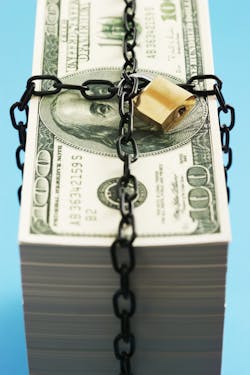When equipment failure interrupts production, a repair is performed so production can resume. But how soon after the failure does repair work begin? How much non-repair downtime transpires in the interim and how much does that cost?
Consider this scenario. A motor stopped running and will not restart. It’s almost break time, so the operator decides to report this after break. At this plant, supervisors request unplanned support from maintenance. The operator comes back and cannot find his supervisor, because she went on break and will be in a 30-min. staff meeting following that. So, an hour goes by before maintenance learns of the problem. The cost isn’t just the operator’s hour of pay for doing nothing. Everything made on this equipment sells, so any downtime is revenue lost forever.
In your plant, you may not have this exact scenario but your system of initiating a repair response may cause similar issues. A components manufacturer shrank their repair delay by equipping each operating area with a 2-way radio (with charger and spare battery) and assigning a maintenance crew leader to be “on call” with a radio on the same channel as the operators’ radio.
About the Author

Mark Lamendola
Mark is an expert in maintenance management, having racked up an impressive track record during his time working in the field. He also has extensive knowledge of, and practical expertise with, the National Electrical Code (NEC). Through his consulting business, he provides articles and training materials on electrical topics, specializing in making difficult subjects easy to understand and focusing on the practical aspects of electrical work.
Prior to starting his own business, Mark served as the Technical Editor on EC&M for six years, worked three years in nuclear maintenance, six years as a contract project engineer/project manager, three years as a systems engineer, and three years in plant maintenance management.
Mark earned an AAS degree from Rock Valley College, a BSEET from Columbia Pacific University, and an MBA from Lake Erie College. He’s also completed several related certifications over the years and even was formerly licensed as a Master Electrician. He is a Senior Member of the IEEE and past Chairman of the Kansas City Chapters of both the IEEE and the IEEE Computer Society. Mark also served as the program director for, a board member of, and webmaster of, the Midwest Chapter of the 7x24 Exchange. He has also held memberships with the following organizations: NETA, NFPA, International Association of Webmasters, and Institute of Certified Professional Managers.
